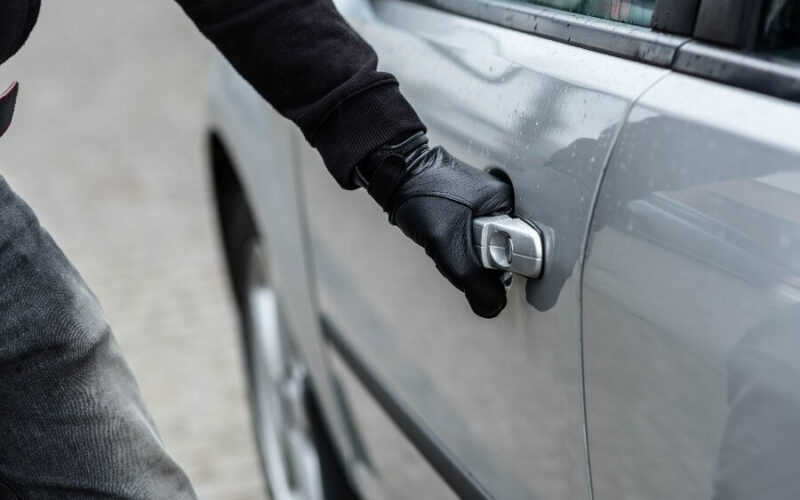Insurance coverage for theft depends on the situation and the type of motor insurance you have. Comprehensive coverage will typically cover theft as well as break-in repair charges. Liability insurance is unlikely to cover theft because it typically covers personal harm and property damage caused by an accident.
Let’s look at a few possible scenarios to see what your car or liability insurance will cover in the event of car theft.
What Is Liability Insurance?
Liability insurance is the bare minimum of coverage required by each state for your vehicle. This form of coverage covers expenses incurred as a result of an accident in which you were at fault. The following are the two most frequent types of liability insurance:
- Bodily injury: It covers the other driver’s and passengers’ medical bills, lost wages, and pain and suffering.
- Property damage: This coverage fixes or replaces the property of others that was damaged in the accident.
Scenarios of Car Theft and Liability Insurance
Unfortunately, car theft can occur in a variety of settings, including:
#1. Break-in:
According to Nationwide, if your car is damaged in a break-in, your comprehensive coverage, not your liability insurance, will normally cover any repair or replacement costs, such as broken door locks, windows, or a damaged ignition system.
#2. Stolen vehicle:
The sort of car insurance you have also played a role in this case. If you have comprehensive coverage, the cash value of your vehicle is most likely covered.
#3. Personal item theft:
Does liability insurance cover the case of theft of your personal items from inside your car? No, unfortunately. Again, the most typical sort of policy is comprehensive auto insurance, which covers any permanent or pre-installed components of your car. However, even this coverage does not often cover items left inside, such as an iPod or wallet. These goods are most likely covered by your renters or homeowners insurance policy.
What to Do If Your Car Is Stolen
It is critical to respond quickly to a car theft in order to reclaim your vehicle. Contact the police as soon as you detect your car is missing. After meeting with an officer and filing a complaint, you can begin the claims procedure by following these steps:
#1. Submit a Police Report
Make every effort to notify authorities within 24 hours of the theft. The sooner police begin searching for your missing vehicle, the more likely it will be found, and the sooner you may begin contacting with your insurance provider.
#2. Submit an Insurance Claim
Your insurance company will require as much information as you can offer in order to analyze your claim and determine how much it will pay out. Some insurance companies allow you to file a claim online or via a mobile app. When submitting your claim, keep the following details in mind:
- The title to the car
- The location of all car keys
- Everyone who has access to the car’s contact information
- A detailed description that includes mileage, service records, and upgrades
- Your lender’s contact information
- The car insurance policy number
- Your provider may also do a credit check to validate your financial situation.
Someone who has a lot of debt and files a stolen car claim may raise suspicions about insurance fraud.
#3. Make contact with the lien holder
If you financed or leased your car, contact your bank as quickly as possible to confirm that it was taken. If the police do not collect your vehicle or it is found totaled, the ultimate insurance compensation will be paid to your lender. Allow them to work directly with your car insurance carrier to speed up the claims process.
#4. Have it inspected
If the cops find your stolen car, take it to a body shop and an expert mechanic to have it evaluated. Automobiles are frequently stolen for parts by thieves. Before you go behind the wheel, make sure your car is roadworthy and in good functioning order.
Is Vandalism Covered By Car Insurance?
In the unfortunate event that your vehicle is vandalized, comprehensive car insurance will give coverage. To begin the restoration procedure immediately after the occurrence, follow these steps:
- Report the vandalism to the police.
- Report it to the authorities.
- Make a list of all the damages to your car.
- Include any stolen stuff.
- Photograph any scrapes, graffiti, or other damage for documentation.
- To file a claim, contact your motor insurance company.
Is your liability insurance comprehensive enough to cover theft? No, it does not.
Is Car Insurance Covered for Theft?
While there is no such thing as “car theft insurance,” there is a policy that covers theft, among other things. Comprehensive coverage covers your car against theft and other loss or damage caused by reasons other than a collision. As a result, full coverage includes theft, falling tree limbs, natural calamities, and vandalism.
How Do Insurance Companies Cover Car Theft?
Comprehensive coverage is provided for stolen automobiles.
If your vehicle is stolen and not recovered, your insurance will pay you the current car value if you have comprehensive coverage. If your vehicle is returned but has been damaged while it was stolen, the repairs should be covered under comprehensive insurance. Your comprehensive deductible would apply in both cases.
A widespread myth is that in order to be covered against auto theft, you must have “full coverage car insurance.” Although there is no such thing as full coverage insurance, many lenders define it as having both comprehensive and collision coverage on your policy. However, depending on your insurance, comprehensive coverage can be purchased separately from collision coverage; it is usually less expensive and offers theft protection.
Car Insurance: Liability vs. Comprehensive
There are several types of car insurance. The most fundamental is a liability, which is required in all states except New Hampshire. Collision insurance assists in the payment of additional damages in the event of an accident. Vehicle theft is not covered by either liability or collision coverage.
A comprehensive policy is required if you want insurance that covers stolen autos. Comprehensive vehicle insurance is sometimes bundled with collision and other forms of coverage, but you can also purchase a comprehensive policy that provides coverage if your car is broken into or stolen.
Other Types of Insurance Might Be Beneficial
Although comprehensive coverage normally covers vehicle theft, it only covers the car itself and not the personal effects left inside. You must file a claim with your homeowners or renters insurance provider for this.
Most homeowner’s or renter’s insurance policies cover theft of personal property, including goods stolen from your car. Check the specific terms and conditions of your policy to understand what is and isn’t covered. So, be prepared to file two insurance claims: one with your car insurance for the car itself, and another with your home or renters’ insurance for the personal property that was inside the car.
You should be aware that some homeowners’ insurance policies offer a lower maximum for things taken while you are not at home.
Read Also: How Much Does a Window Cleaner Make In The United States In 2023?
Is vandalism covered by car insurance?
Comprehensive car insurance will cover you if your vehicle is vandalized as long as you take the necessary precautions. Following the incident, you should take the following steps:
- Report the vandalism to the authorities, since your car insurance carrier will oblige you to do so.
- Make a list of all the damages to your car and take pictures to prove it.
- To file a claim, contact your motor insurance company. You will need the list of damages you compiled, images of the damages, and a list of any stolen items.
- Taking the necessary safeguards can assist to keep your car safe and limit the likelihood of theft or vandalism.
Conclusion
With so many different car insurance policies available, keep in mind that only some will cover you if your car is broken into or stolen. You will not be adequately protected if you merely have liability or collision insurance. Only comprehensive insurance covers your car if it is stolen, and it does not cover any personal items left inside. You must file a claim with the provider of your homeowners or renters’ policy for this. File a police complaint and insurance claim as soon as possible to expedite the process and allow you to replace your car as soon as feasible.
Does Liability Insurance Cover Theft FAQs
What does the liability insurance cover?
If you are legally held liable for someone else’s accident or property damage, liability insurance can assist cover your medical and legal expenses. Almost every state requires drivers to have liability insurance.
What kind of insurance protects your car against theft?
Comprehensive insurance
Comprehensive insurance typically helps cover car theft, stolen car parts, and damage caused by a break-in (such as broken windows or damaged door locks). If you’re leasing or financing your vehicle, your lender will most likely require comprehensive coverage.
What is the difference between full coverage and liability?
To put it simply, liability insurance covers the harm you cause to others, whereas full coverage policies cover both liability and property damage to your own car.
What is the 80% rule in insurance?
Most insurance companies require you to insure your home for at least 80% of its replacement cost. (While 100% coverage is preferable, most insurance companies will pay out a complete claim if you have at least 80% of the replacement cost covered.) Mar
Insurance words, definitions, and explanations are provided solely for informational purposes and are not meant to replace or amend the definitions and information contained in specific insurance contracts, policies, or declaration pages, which are the controlling documents. Such terms and availability may differ from state to state, and exceptions may apply.
Related Articles
- Unique Insurance Company: Claims and Reviews
- PROPERTY DAMAGE LAWYER: When You Need a Property Damage Lawyer
- AMTEX INSURANCE: Auto Insurance Reviews In Texas
- CAN I GET AFFORDABLE INSURANCE WITH MAGNUM INSURANCE AGENCY IN 2023?
- How To Get Insurance To Pay For Roof Replacement
- How to Get Insurance on the Spot in Illinois, Chicago






